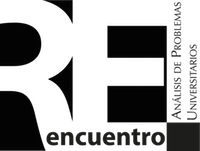El doble carácter de la educación indígena
Reproducción y resistencia
Keywords:
Educación musical, Indigenous education, Pueblos originarios, reproducción, resistencia, Educación formal, Educación no formal, Educación informal, Native people, reproduction, resistance, Formal education, Not formal education, Informal educationAbstract
In this respect, at the beginning of the XXI century, research has evinced that both formal and not formal education in general have furthered the reproduction of prevalent cultural patterns, both in their public and private aspects. On the other hand, however, informal education is the one that has enabled the mayority of original peoples and their cultures to exert their mechanisms of cultural endurance, supporting their survival not only in Mexico, but throughout the world. That is the reason why the twofold character of education: reproduction and resistence as the states, can in fact be asserted, taking into account the presence of manifold factors that intervene in the national weavings with their multicultural nature. It is the purpose of this research to analyse the conditions of the different original peoples that have managed to survive preserving their own cultures due to their use of this conservative process.






